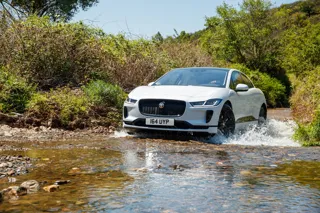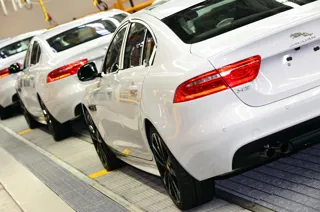Jaguar Land Rover (JLR) and BMW Group will work together to develop powertrains for future electric cars.
The companies will collaborate on the development of Electric Drive Units (EDU), which includes electric motors and the electronics required to control and operate them.
Future models from both companies are likely to be powered by the same shared drivetrains, although each brand is expected to manufacture the systems at their own facilities and to their own bespoke requirements.
Nick Rogers, Jaguar Land Rover Engineering director, said: “The transition to ACES (Autonomous, Connected, Electric, Shared) represents the greatest technological shift in the automotive industry in a generation. The pace of change and consumer interest in electrified vehicles is gathering real momentum and it’s essential we work across industry to advance the technologies required to deliver this exciting future.
“We’ve proven we can build world beating electric cars but now we need to scale the technology to support the next generation of Jaguar and Land Rover products. It was clear from discussions with BMW Group that both companies’ requirements for next generation EDUs to support this transition have significant overlap making for a mutually beneficial collaboration.”
Starting next year, the BMW Group will introduce its fifth generation EDU in the iX3. It will be the propulsion system upon which subsequent evolutions launched together with Jaguar Land Rover will be based.
“We see collaboration as a key for success, also in the field of electrification. With Jaguar Land Rover, we found a partner whose requirements for the future generation of electric drive units significantly match ours. Together, we have the opportunity to cater more effectively for customer needs by shortening development time and bringing vehicles and state-of-the-art technologies more rapidly to market,” said Klaus Fröhlich, member of the Board of Management of BMW AG, Development.
Jaguar, Land Rover, BMW and Mini all have significant experience in developing fully-electric and plug-in hybrid models. The agreement will enable both companies to take advantage of efficiencies arising from shared research and development and production planning as well as economies of scale from joint procurement across the supply chain.






















Login to comment
Comments
No comments have been made yet.